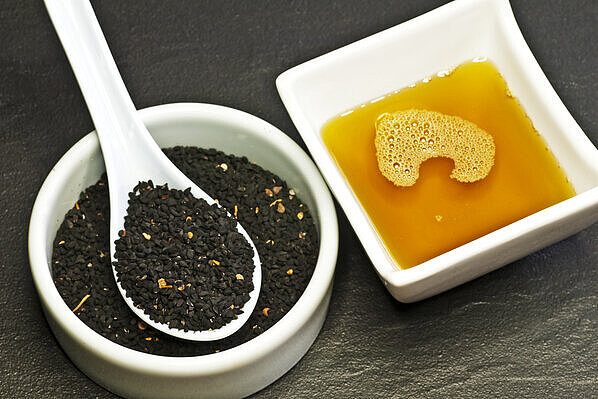Anise extract

What is anise extract?
Anise extract is made from the seeds of the anise plant (Pimpinella anisum), which is known for its characteristic sweet and spicy smell. This extract is often used in the culinary world as a flavor enhancer, but is also used in the animal world, especially in the diet of dogs.
The benefits of aniseed extract for dogs
Natural flavor and appetite stimulation
One of the main reasons why anise extract is used in dog food and treats is because of its natural flavor, which often stimulates dogs' interest and appetite. For dogs that are prone to food aversion, anise extract can be a valuable ingredient to make their meals more appealing.
Supporting digestion
Anise extract is traditionally thought to have a digestive effect. Its relaxing properties on the digestive tract can help to relieve bloating and cramping in dogs. This makes it a useful supplement, especially for dogs with sensitive stomachs.
Breath freshening
The antibacterial properties of aniseed can help to combat bad breath in dogs. A treat with anise extract can therefore not only be a reward, but also contribute to the dog's oral hygiene.
Possible disadvantages and precautions
Allergic reactions
Although rare, it is possible for some dogs to have an allergic reaction to aniseed extract. Symptoms of an allergy may include skin rashes, itching or digestive problems. It is important to carefully monitor your dog's reaction to new ingredients in their food.
Excessive consumption
As with everything, when using anise extract, the dose makes the poison. If consumed in large quantities, aniseed extract could cause unwanted side effects such as nausea or diarrhea in dogs. It is therefore advisable to use anise extract only in moderate quantities.
Interaction with medication
Dogs that are already on medication could experience an interaction when anise extract is added to their diet. It is always a good idea to consult a veterinarian before introducing any new supplements or ingredients into your dog's diet.
Anise extract can be an enriching addition to your dog's diet, but it has both advantages and disadvantages. While its appetite-stimulating, digestive and breath-freshening properties make it an attractive ingredient, it's important to keep in mind possible allergic reactions, proper dosing and potential drug interactions. Ultimately, the decision to introduce anise extract into your dog's diet should be based on careful consideration and, if possible, in consultation with a vet.
Properties 6
Are you looking for other ingredients with a specific property?
Just click on them to find more.
If you notice any signs of hypersensitivity or poisoning in your dog, you should see your vet immediately. We are not a substitute for a vet, but we try to be as accurate as possible. Every dog reacts differently and we recommend you get a second opinion or consult your vet if in doubt.
Stay healthy and take good care of your four-legged friend!😊
Similar to Anise extract
Fennel oil is obtained by steam distillation of the seeds of fennel (Foeniculum vulgare). It is known for its sweet, earthy and aniseed-like scent. Fennel itself is a plant that has been valued for...
Star anise oil is extracted from the star fruit of the evergreen tree Illicium verum, which is mainly native to southern China and Vietnam. This essential oil is extracted by steam distillation of...
Black cumin oil is a vegetable oil that is produced by cold pressing the seeds of the black cumin plant. This plant belongs to the buttercup family and grows in West Asia, India, North Africa and...
Coriander oil is an essential oil extracted by steam distillation of the seeds of the coriander plant. It is known for its distinctive, spicy odor and contains a variety of compounds that may...



